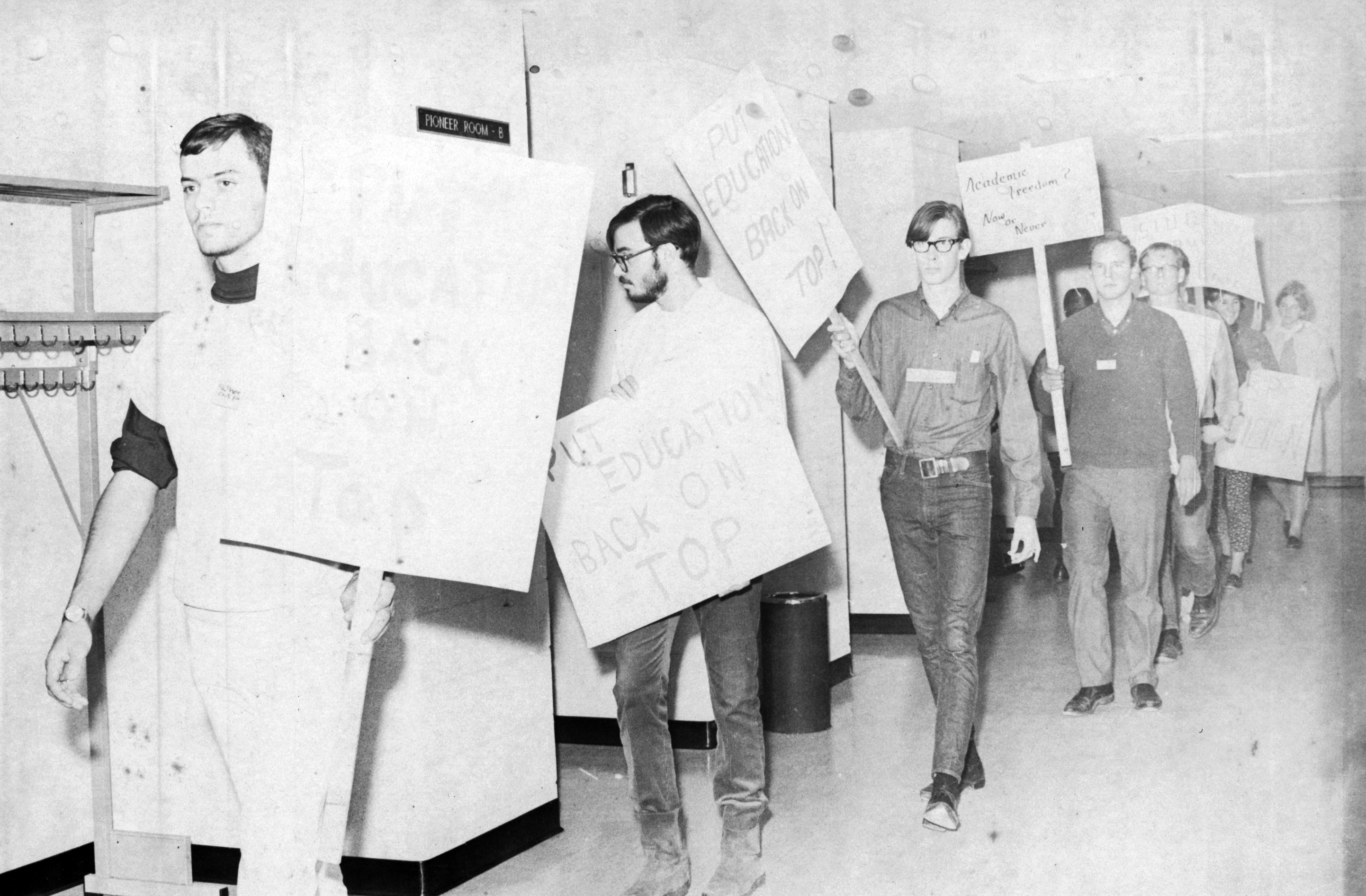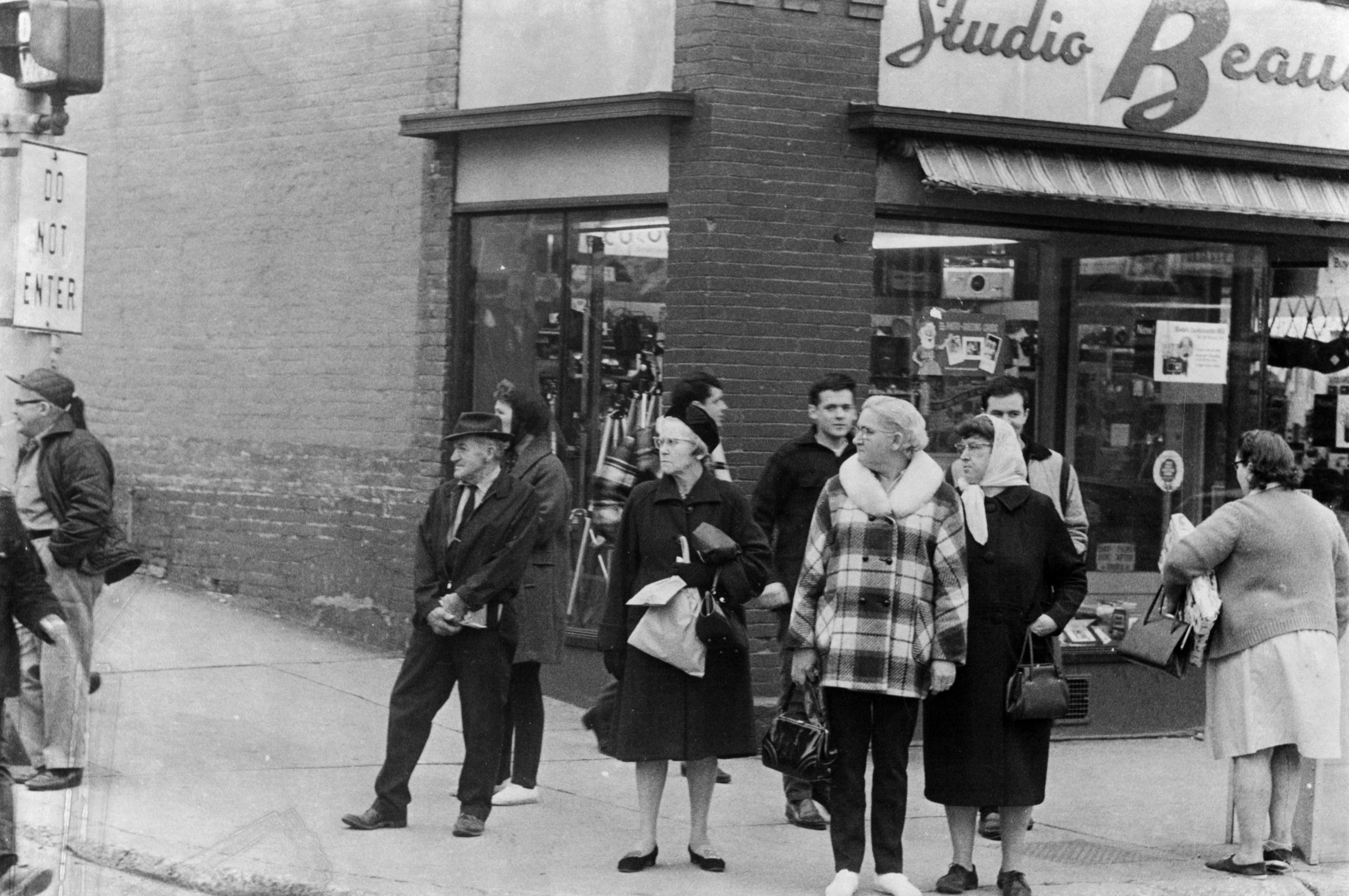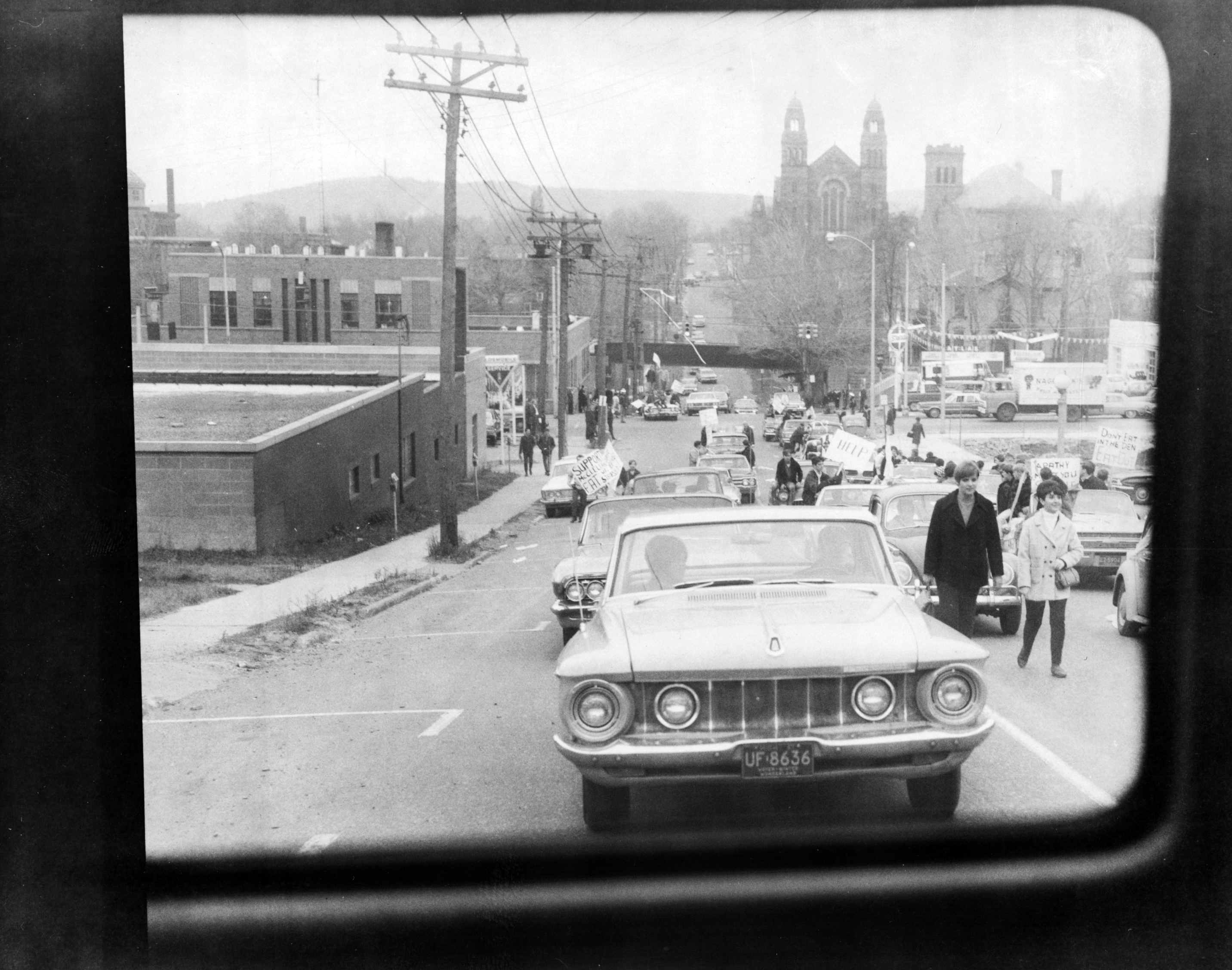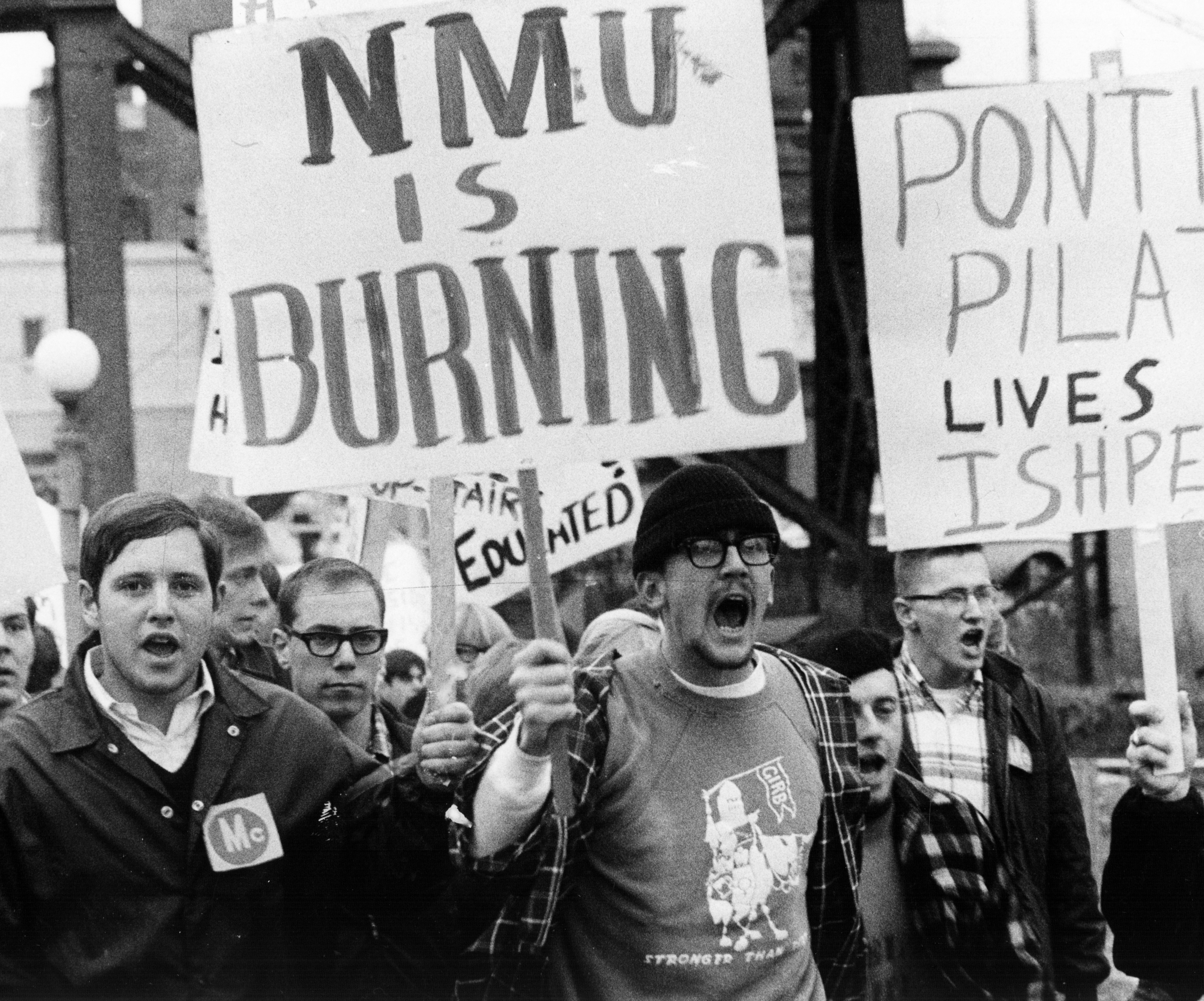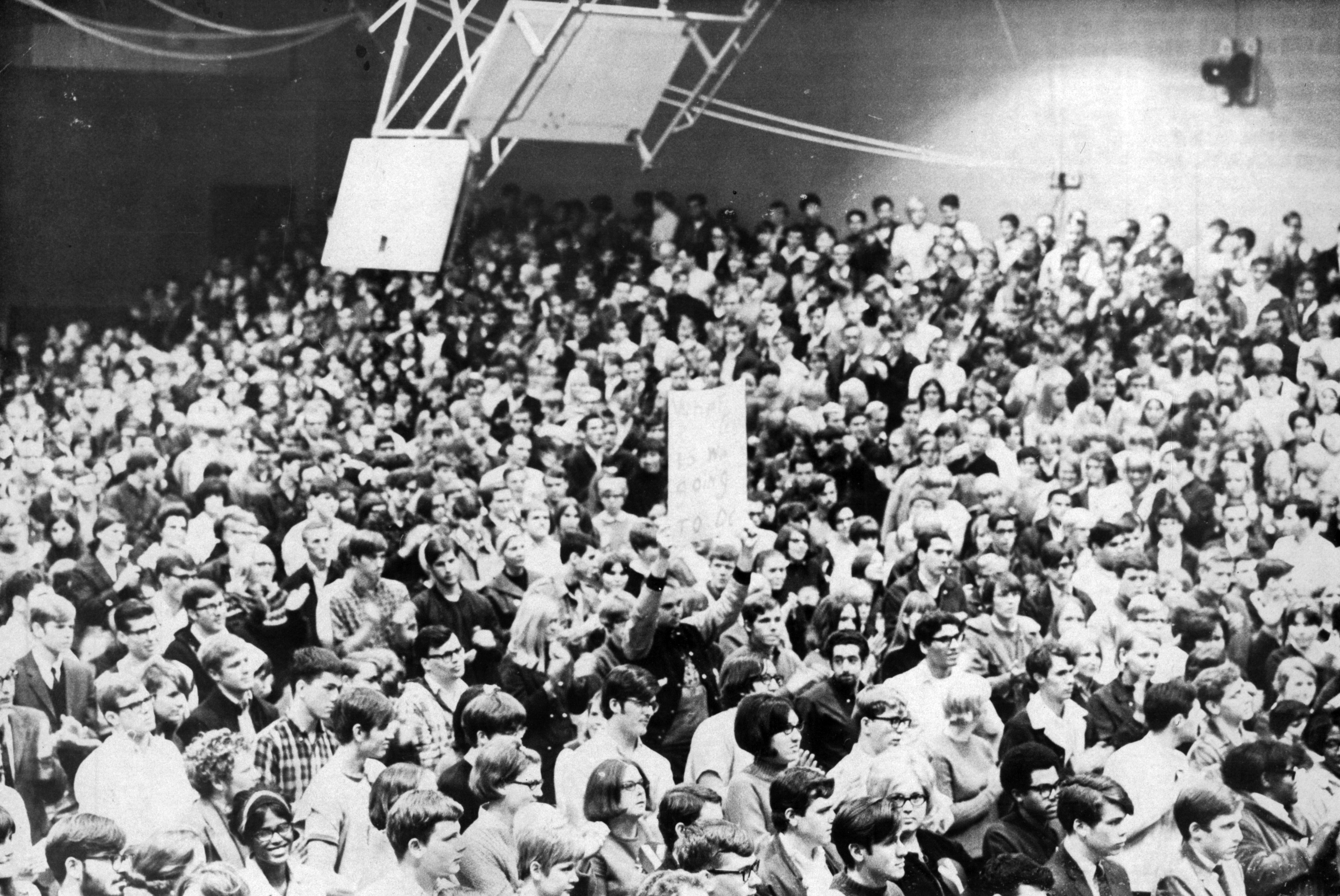The McClellan Controversy (Continued)
On the same day that Harden resigned as Northern’s President, Harden told Dr. Forbes, the head of the history department, that he had decided to fire McClellan. Forbes asked if he could be the one to tell McClellan so that he could help him start to look for another job. Harden denied Forbes’ request and proceeded to not inform McClellan of his dismissal for another month.
However, the administration did not reveal the reasons for McClellan’s dismissal. They feared that people would sympathize too strongly with McClellan’s case. McClellan explained:
“Some of the charges against me were really just trumped up charges. I mean the cause of my dismissal as announced by the administration clearly wasn’t the cause. Nothing was said about North Marquette or what I had said in the classroom. The causes for my dismissal were 1) that I was gay, I was homosexual and this was advertised to the community in a radio broadcast put together by the administration, the higher administration…Another charge was that I was a Communist sympathizer. I had been at Berkeley for a while and…I knew in the Free Speech movement a guy by the name of Mario Savio. And so the name, I can’t imagine it would mean anything to you, but…at that time [Savio] was considered a Communist radical, a Com Symp, as we were called….So that was another charge, that I was a Communist sympathizer, and I didn’t belong in Marquette and I didn’t belong anywhere. The third charge was that I was negligent in my duties—that I had missed class, that I had missed committee meetings and various administrative supporters came forward to testify. One of them was Al Niemi, Sr., who testified that on the same Student Affairs committee that we talked about that I had been absent repeatedly and that my attendance was irregular and that I was an irresponsible faculty person…
"And then they, the administration, decided other things that I had done—not meeting office hours. Fortunately, I wasn’t accused of sexual harassment of any students, that really wasn’t in vogue. I think they would have done it if they thought they could get away with it….And those are the reasons which were offered for my dismissal…The real reasons, of course, weren’t reasons at all. I mean, I was exercising my right as an American citizen to engage in political organization and to defend the rights of what I saw as under-privileged people who were being abused by the state authorities and they couldn’t charge me for that. That would only have served to swing sympathy over to me…so they used charges that they thought people would sympathize with. After all, Marquette and the Upper Peninsula was a very conservative place and still is and being a Communist activist—I don’t know if you know much about the McCarthy era, but being accused in those days of being a Communist sympathizer was a very, very serious charge. People lost their jobs for that alone. And being accused of being gay was not any better…the idea was that I was gay and a bad person in all ways.”
McClellan described his actions after learning he had been fired:
“It was, I would say, devastating…it was terrifying. I was terrified. I didn’t know what I was going to do next. What I did do next is maybe what I shouldn’t have done, but what I did do next was fight back…. And I went down to the ACLU in Lansing and I told them what had happened, and I told them how the university had used university funds to go on the radio and condemn me and they didn’t believe it. They said, that’s a fantasy. I mean, there is no way that an administration could be that dumb. But if that happened to be true, you have a federal case. Not a state case, but you have a federal violation of your rights….And if that’s true, if what you’re telling us is true, and other people have told us it is true…and if it’s true, we will take the case. And I said, well, I’ll wait, I know it’s true and I know you’re going to call me and you’re going to take the case if that’s what you say. So they took the case and that put a whole different light on it. I was still terrified, but at least I had a way of fighting back. And from that I got into the whole business of the law suit and a whole group of local attorneys represented me and the thing snowballed. It was really out of my control. Faculty rallied around. Good friends of mine formed a financial committee and a couple guys were the treasurers and funds were raised and students were extremely supportive of me. Some of the student leaders were supportive and there was that infamous McClellan Week where the university students claimed that they weren’t going to class and many of them did not go to class…I think it was a majority.”
So, how did the entire university, both students and faculty, come to be embroiled in a year of unrest and protests? Why did they back McClellan? How effective were their protests in eventually re-instating McClellan?
Official Charges are Issued
At one point in McClellan’s interview, he said that the reasons that the administration invented for his dismissal—that he was gay and a Communist sympathizer—were advertised on a radio broadcast “to the community.” However, he said later in the interview that these reasons were not widely known among the public. Local sources also seem to indicate that these charges were not publicized in the local community or on campus. Early newspaper articles suggest that the administration simply refused to explain to the wider community why they had fired McClellan. Harden refused to meet with the faculty because their “minds were already made up” that he should retract the termination. As pressure mounted among the faculty and the community to explain their decision, Ogden Johnson, the interim president, had to give some sort of explanation for the firing. On October 9, he finally gave four reasons for the firing of McClellan: that he had criticized the Four Course Plan in his classes, that he had forced his students to go and survey people in North Marquette about their feelings on university expansion, that he had encouraged the students to sue the university about being charged full price for sub-standard dorms, and that at a public meeting about university expansion he had “harassed and humiliated the representatives of the university.”
Johnson further stated that “the decision had nothing to do with Dr. McClellan’s moral character or private life” and “that he did not see any question of academic freedom involved, and that he saw no likelihood that the decision would be changed.” Harden repeatedly emphasized in various letters that he believed that firing McClellan was “in the best interest of the University.” Johnson also stated that Dr. McClellan had done nothing “to strengthen the university, to unite people on the campus, and improve our relationship with the community” and that he found it “distressing and almost incomprehensible that persons loyal to Northern would permit this single action of a distinguished President to so cloud the beginning of the academic year and a new Administration whose sole purpose is to maintain and improve the standards of Northern”—implying, the faculty noted, that anyone who opposed the decision was being disloyal to NMU.
Were the Charges Factual?
McClellan and those defending him never claimed that the general causes stated for McClellan’s dismissal were untrue: he had opposed the Four Course Plan, his students had interviewed the citizens of North Marquette, he had opposed university expansion, and he had spoken with students about the dormitory conditions. However, the details of the charges and whether such actions merited dismissal were vehemently refuted by the students, faculty, and the Marquette community.
On October 17, the case was further publicized by a TV and radio broadcast of the four charges. Johnson also selectively quoted from evaluations of McClellan in which he was called “an angry young man in an awful hurry.” In response, the Faculty Senate released a statement in which they “intend[ed] to show that Dr. McClellan has in fact acted responsibly, that he was acting within his rights as both a member of the faculty of Northern and as a citizen of Marquette and the state of Michigan, and that by arbitrarily dismissing Dr. McClellan, the administration of the university, particularly Dr. Harden and the Board of Control, was acting contrary to the ideals and principles of a University.” They particularly took fault with Johnson’s claim that other administrators and Forbes had agreed with Harden’s decision. They publicized the full context of Forbes’ evaluations: “I would hate to see Professor McClellan leave. A certain amount of agitation is sadly needed in the groves of academe. Had he lived in medieval times he would either have founded a new order in the Church or been burned at the stake for heresy. He is an angry young man in an awful hurry. I hope he slows down before he gets badly burned” and noted that a future favorable evaluation had not been noted at all. They stated that the administration’s lengthy refusal to give any reasons for firing McClellan was in bad taste, as “in a matter of this sort…silence can be more damaging than the full presentation of the charges. Not only does silence imply that there is something very shady about the dismissed person which should not be known, but it can be intimidating to his former colleagues who wonder just what action or actions were so dreadfully improper.”
They proceeded to reply point-by-point to the accusations leveled by Johnson: McClellan, in speaking to students about the dormitory situation, had not advised them to sue the university. He told them that “every man must act according to the dictates of his own conscience and accept the responsibilities for his actions.” A mass meeting of students would later verify that this was what McClellan told them. It had also been charged that as chairman of the Committee of Student Affairs he had failed to convene meetings regularly enough, but faculty were able to produce proof showing that the committee had met regularly.
Many who were at meetings about the university expansion attested to the fact that McClellan had never made inflammatory statements at their meetings. In addition, it was soon revealed that McClellan had joined a group called the Citizens of Marquette “at the request of the university.” Other groups, such as the North Marquette Homeowners Committee, said that McClellan had never acted on their behalf, but had only served as a spokesperson for their group. They said that he “did not, as charged by the university, open any meeting with an air of hostility, use inflammatory remarks, or shout in the presence of the committee. In spite of what the university’s presidents are now saying, we…wish to inform Dr. Edgar Harden and President Ogden Johnson, since their representatives seem to have forgotten, that it was generally agreed at the conclusion of the meeting that said meeting was informative and constructive and a step in the right direction. The only thanks due to anyone at that time were to Dr. McClellan for his effort and dedication in civic affairs.”
They noted that claiming that the survey of North Marquette was a required assignment implies that “Dr. McClellan was attempting to indoctrinate his classes to a viewpoint allegedly unfavorable to the institution.” McClellan said, however, that the class voted upon the assignment and organized it themselves, though he did supervise it.
Finally, the faculty commented that they disagreed with the statement that Dr. McClellan had done nothing “to strengthen the university, to unite people on the campus, and to improve our relationship with the community.” The faculty replied that Dr. McClellan’s “work on faculty committees and with civic organizations,” “the attested popularity of Dr. McClellan as an instructor,” and “the statements of his colleagues and superiors” indicated otherwise.
Furthermore, the faculty charged that McClellan had been fired contrary to procedures in the “Faculty and Staff Administrative Guide” (a guide created by Harden). McClellan’s immediate supervisors were not consulted about the decision, but were instead informed that Harden was going to fire McClellan and that there could be no discussion about it. In addition, faculty members were supposed to be informed of their firing a full twelve months in advance, while the administration informed McClellan only 11 months in advance that he was not going to be reappointed.
